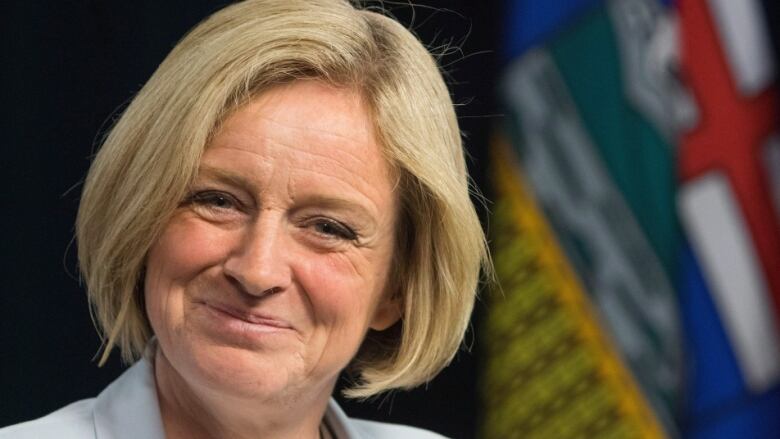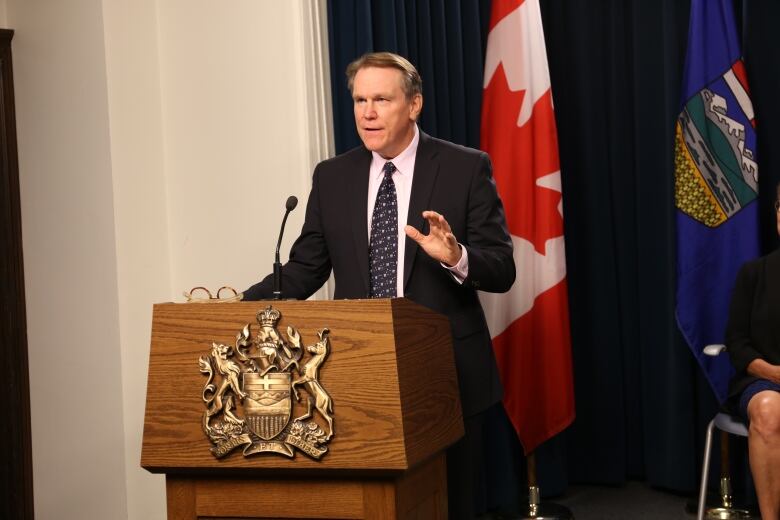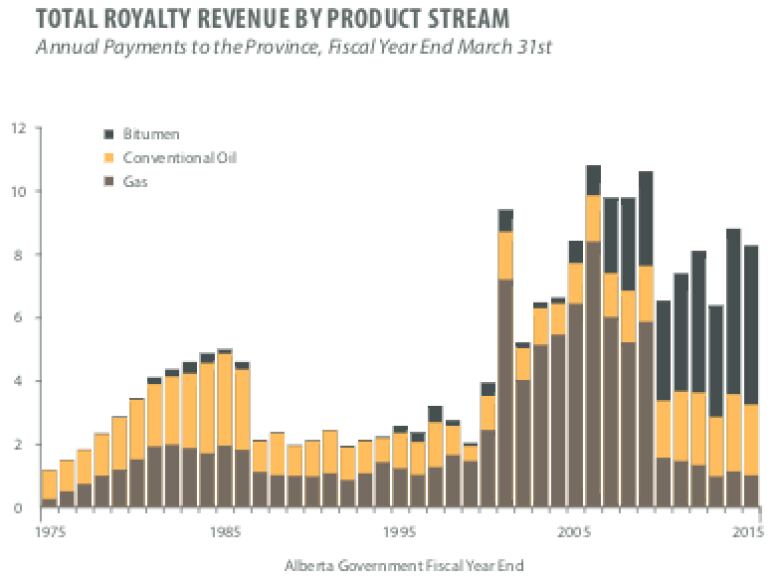Oilpatch wins the day in royalty review
Is it time for the oilpatch to stop fearing the NDP?

Originally published Jan. 29.
The collective sigh of relief in downtown Calgary was probably audible last week, as Alberta's royalty review panel decided against asking the energy sector to pay more.
There was no change to oilsands royaltiesand no increase in rates for conventional oil, natural gasor natural gas liquids.The only way the provincial government will see more revenue from the industry is if production grows and drillers become more efficient.
I think it'ssoberingfor people who might have the impression of an industry that is always raking in lots ofmoney.- Gary Leach, Explorers and Producers Canada
After the fear and uncertainty that was unleashed 10months ago after the NDP election in Alberta, itwas the best possible outcome for the energy sector.
So what happened?
Why aren't royalties going up?
During the provincial election campaign, then-NDP leader Rachel Notley said that underProgressive Conservative governments, Alberta charged one of the world's lowest royalty rates for its energy. That was the popular sentiment based on an almost impossibly complex royalty regime and a general sense that for many years,the oilpatch sure made a whole bunch of money.

The vast majority of the $3-million budget for the royalty review panel was spent on data, including a comprehensive report comparing royalty rates in different parts of the country and the world.As it turned out, that report showed Alberta in the middle of the pack, better royalties than some locations, worse than others.
- Alberta royalty report pleases oil industry but draws fire from opposition
- Alberta royalty review recommends few changes for oil and gas industry
Not the worst in the world not even close.
'"I think it'ssoberingfor people who might have the impression of an industry that is always raking in lots ofmoney," said Gary Leach, executive director of Explorers and Producers Canada, which represents junior energy companies.
Oilpatch in existential crisis
Leach said he is glad the report was done during an economic downturn.
"Doing this review against this backdrop is very sobering for governments," Leach said. "In fact, the panel report shows that this industry actually has a very low rate of return on capital invested."
According to one member of the royalty panel, Alberta'senergy sector is in an existential crisis prices are low, the provincehasno tidewater access, costs are high andthe U.S. is producing its own oil and gas and starting to export. The world does not need to come to Canadato get oil anymore.
That existential crisis was heightened by the election of a government that was thought to be antagonistic to the industry.
But that perceived antagonism seemed to have been trumped by data. Most energy companies came out of the royalty consultations feeling good.

Encouraging drillers to become efficient
What did change in the review is the manner in which conventional oil and gas drillers calculate their royalties Currently there is a hodgepodge system that resulted in every well in the province paying a different royalty rate.
- Alberta royalty review pleases oil industry but draws fire from opposition
- Alberta NDP warns that oil's continued slide could delay campaign promises
While that system will continue for existing wells for a decade, for new wells that begin drilling in 2017, it will be much more straightforward. They will pay a fiveper cent royalty rate until they have paid off the capital costs of drilling the well. Once that happens, a higher royalty rate will kick in.
What's key here is that the government will determine what the capital costs of drilling the wellshould be, based on an industry average. That means that companies that can drill wells cheaper thanaverage get to pay a lower royalty rate for longer, while those who are less efficient will start to pay higher royalties before earning back the cost of drilling the well.
Playing the long game
All this is intended to grow the industry by making it more efficient and more attractive to investment. But it's not a quick turnaround. Premier Notleysuggested that after two years, there would be more royalties flowing to government that will be invested in the Heritage Savings Trust Fund. Even that might be an optimistic timeline.
"These kinds of evolutionary changes in asystemtake time," Trevor Tombe, an economist with the University of Calgary, said.
"It will require firms to innovate, to think through newprocesses. But that's good, royalties are not here for short-term gains;they're here to ensure you have astablepredictableefficient system in the long run."
Alberta not thinking like an owner
While this means the energy industry can probably stop fearing the NDP, not everyone agrees with the approach.
Jim Roy is the president of Delta Royalty Consulting and a former royalty advisor for Alberta Energy. He had hoped that the province would roll back some of the royalty reductions that were enacted in the last change in 2009 and was disappointed that not only were the old rules continuedfor existing wells, but that incentives continue tobe offered for new wells.
Roy also questioned why Alberta would be encouraging more oilsands development in a time of depressed prices.
"The plan appears to be to increase Alberta production at the maximum possible rate despite low prices," said Roy in an interview.
"This strategy may help American consumers, but does not help Alberta owners."













_(720p).jpg)


 OFFICIAL HD MUSIC VIDEO.jpg)
.jpg)



























































































